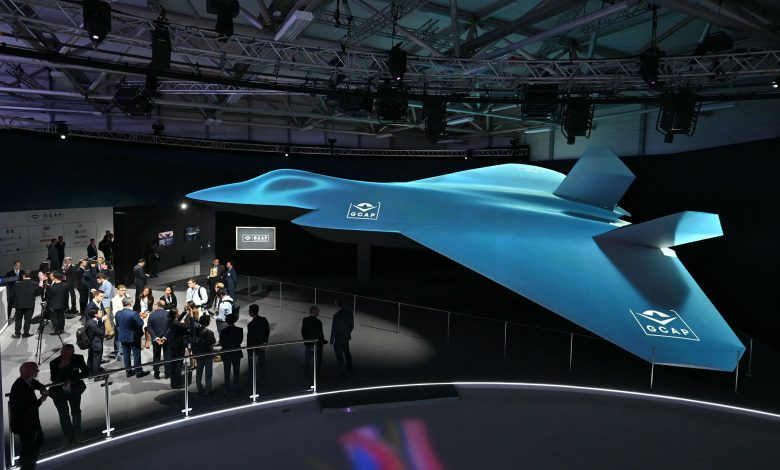Leonardo CEO says sixth-gen fighter is likely safe from budget cuts

ROME — The U.K. is not about to drop out of the Global Combat Air Programme fighter effort, despite speculation to that end during the Farnborough Airshow, a senior industrial official linked to the jet has said.
“I do not have any indication they want to drop or freeze the program,” said Roberto Cingolani, CEO of Italian defense giant Leonardo, which is part of the industrial team on the program. The other players are BAE Systems for the U.K. and Mitsubishi Heavy Industries for Japan.
Cingolani was reacting to reports that a defense review by the U.K.’s new Labour government led by Keir Starmer may cut funding to the program which teams Britain with Italy and Japan.
Press speculation was triggered when new U.K. armed forces minister, Luke Pollard, last week said the sixth-generation fighter was a “really important program for us” but declined to “prejudge what might happen in the defense review.”
“I met Prime Minister Starmer a couple of days ago and he assured the program is a priority,” Cingolani told Defense News.
“There is a new government and it is quite normal they have a spending review. I did not have any indication they want to drop or freeze the program,” he said.
“I have spoken to my colleagues at BAE and we shared this opinion. I think we should go ahead with the work we are doing,” Cingolani said, adding, “To me the program is strong, the countries are committed I don’t think what we read is a realistic description of the situation.”
Leonardo meanwhile launched an upgraded “Block 20″ version of its M-346 jet trainer at Farnborough, which Cingolani said was developed with training to fly the GCAP in mind.
Enhancements to the avionics, navigation, identification, mission equipment and ground training capabilities to the trainer are matched by a new electronically scanned radar for the fighter version of the jet.
Asked about how the GCAP would operate alongside and control swarms of drones, Cingolani said, “When you buy the GCAP it is like buying an aircraft carrier. The drones it controls are the aircraft on board. It will be more expensive, but you are buying a fleet.”
A trained physicist who has worked around the world, Cingolani said he saw few problems aligning the engineering cultures of the U.K., Italy and Japan.
“I have worked in Japan, Germany, the U.K., France and the U.S. I am a nomad, a global scientist. If you close me in one country and force me to be a domestic technologist, you kill me,” he said.
Tom Kington is the Italy correspondent for Defense News.







